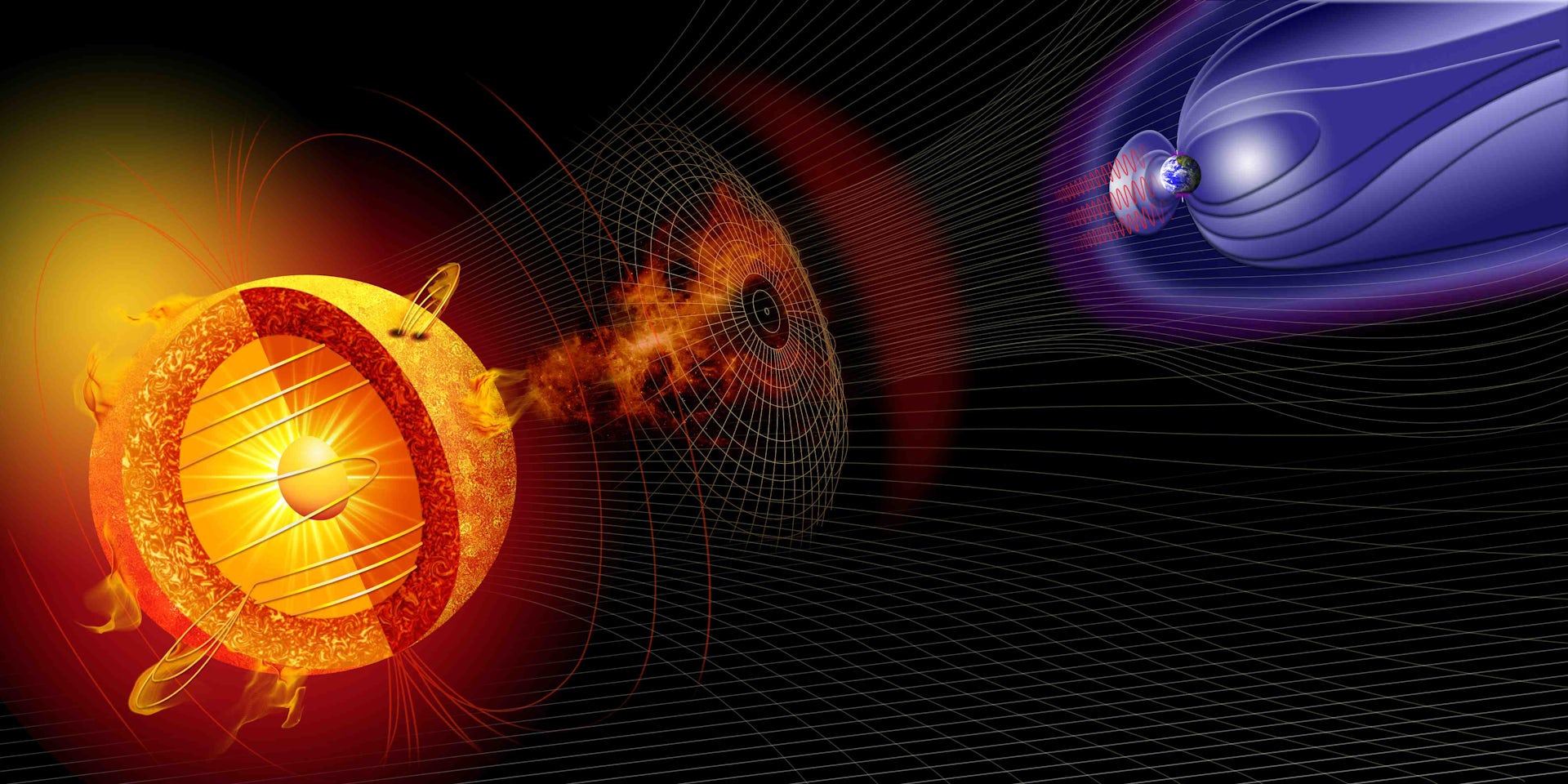
The same geomagnetic storms causing the auroras can cause havoc with our planet’s human-made infrastructure.

The differential rotation seems to be reined in by long-period oscillations of sound waves in the convection zone that can be detected on the surface as swirling motions around the poles.

A total solar eclipse takes place on April 8 across North America.

On the 14th of December our star unleashed an X-class solar flare. Solar physicists classify strong flares into three categories, with C being the weakest, M the middling group and X the most potent.

A massive hole opened up in the Sun's atmosphere over the weekend, measuring more than 60 times the diameter of the Earth across at its peak.

A similar solar storm today would be catastrophic for modern technological society—potentially wiping out telecommunications and satellite systems, causing massive electricity grid blackouts, and costing us billions of pounds.

The intrepid little spacecraft flew through a coronal mass ejection, helping scientists understand space weather.

The international team behind the discovery also found that this type of light, known as gamma rays, is surprisingly bright. That is, there's more of it than scientists had previously anticipated.

Meteor-like fireballs in the atmosphere of the Sun rain down like showers of shooting stars during the phenomenon of coronal rain, scientists have found.

The model uses AI to analyze spacecraft measurements of the solar wind and predict where an impending solar storm will strike, anywhere on Earth, with 30 minutes of warning. This could provide just enough time to prepare for these storms.

A giant 'hole' has appeared on the surface of the Sun, and it could send 1.8 million-mph solar winds toward Earth by Friday.

A massive eruption of solar material, known as a coronal mass ejection or CME, was detected escaping from the Sun at 11:36 p.m. EDT on March 12, 2023. Even though the CME erupted from the opposite side of the Sun, its impacts were felt at Earth.

A new analysis of dust retrieved from the Moon suggests that water bound up in the lunar surface could originate with the Sun.

NASA has sent a spacecraft, the Parker Solar Probe to the outer reaches of the sun’s atmosphere – the corona – where it spent five hours. This is the first time a spacecraft has come so close to the sun.

Totality was visible only in Antarctica on early Saturday, experienced by a small number of scientists experts and adventure tourists.